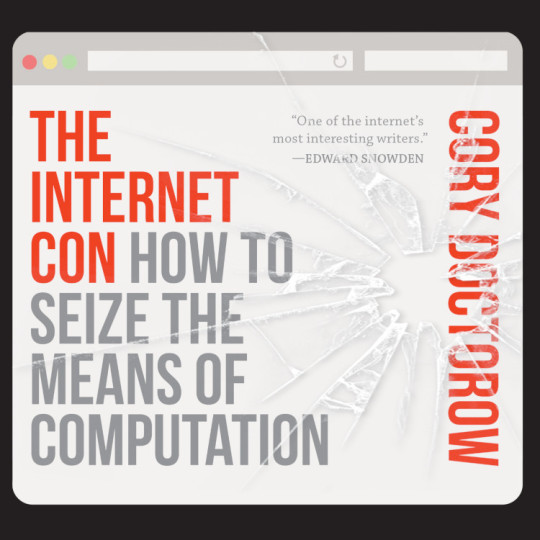#Technology in Localization
Explore tagged Tumblr posts
Text
Future-Proofing Localization: Insights from Rodrigo Corradi
Rodrigo Fuentes Corradi Introduction In a compelling Episode 61 of the Localization Fireside Chat, host Robin Ayoub engages with Rodrigo Fuentes Corradi, a veteran in the localization industry with a 25-year track record specializing in machine translation technology and human processes. Rodrigo now helps Language Service Providers (LSPs) and language technology companies to execute successful…

View On WordPress
#AI Integration#AI Trends#Data Security#global communication#Human-AI Collaboration#industry insights#Industry Leadership#Localization#Localization Strategies#Machine Translation#Market Strategies#Rodrigo Corradi#Technology Adoption#Technology in Localization
0 notes
Text

Retconned Wardi firearms- a basic handgun, a highly decorative ceremonial handgun (belonging to Faiza), and a lance-gun.
Gun tech has officially been nerfed down to hand cannons (press F) (this has been a long time coming but I'd been fallacy of sunk costs-ing myself out of retconning).
Handguns are held similarly to a shotgun, with the butt pressed into the user's shoulder, one hand gripping under the barrel, and the other free to ignite the gunpowder. These represent the most advanced firearms in contemporary usage, both in make and in their use of uniform iron projectiles built to match the gun's bore for greater range and efficiency. Lance-guns are the more basal form, usually larger and mounted with the pole held over the shoulder, and are most effectively used by two people (one to hold and aim, one to light the gunpowder).
The spread of firearms is currently mostly limited to the Eastern Inner Seaway peoples (with some additional distribution via overland trade), and actual manufacture of hand cannons and gunpowder at Significant scale is limited to the region's core powers.
The reason for this limited spread is partially due to specific elements of the technology's history. Gunpowder was first synthesized by Burri alchemists and considered to be the discovery of the legendary divine weapon + solar fire of the deity Inanariya, and its formula (along with techniques for ideally refining its components) remained a closely guarded state secret. It was used predominantly in priestly contexts to generate flame and explosive sounds (in conjunction with earlier practices of generating multicolored flames with use of other chemicals), then integrated into combustible weaponry in the forms of fire lances, which would eventually develop into early handcannons.
The treatment of gunpowder as a guarded sacred or semi-sacred substance continued with Wardi adoption, where knowledge of its making is considered a closed rite. It's name (inya tsatsul or just tsatsul, a derived adoption of the Burri iñazatsūya) still reflects a divine solar association (the Burri word means 'sun's thunder', the Wardi 'inya' invokes the sun, 'tsatsul' is an adapted loanword and has no meaning independent of the substance itself), though its priestly use is now predominantly associated with the firearm'ed Odonii (rather than priests of the solar Face Inyamache). The composition of gunpowder can no longer be regarded as a Secret by any means, though efforts to obscure the methods of its creation are still moderately successful and has kept knowledge of gunpowder manufacture more limited than the total sphere of firearm usage itself.
The actual strongest limiting factor of firearm usage is the rarity of natural saltpeter deposits necessary for making gunpowder. The practice of actively producing saltpeter via nitraries has not been developed anywhere in the setting, and all is instead obtained via natural sources. These sources are rare and limited within the current spread of firearm technology, and result in gunpowder being a limited and expensive substance to produce. The weapons themselves are also very expensive to manufacture (a good quality steel SWORD is far too material-cost prohibitive for most people to own), particularly high quality firearms designed for use with standardized ammunition.
These guns are also very basal, and logistical difficulties in their use (weight, very slow loading and firing speed, high visibility, Relatively low reach and accuracy) along with the restrictive cost of production has kept firearms far from rendering conventional weaponry, armor, and projectiles obsolete (even within the societies that have access to them). They are still, however, very devastating in use within their contemporary context, particularly in that high quality guns have a longer range than the best arrow-based projectiles, and utterly negate most contemporary forms of armor at close range.
#I'd consider the setting to be like.....most closely analogous to like 3rd-1st century BCE earth (in terms of the average scale of#societies + Most of its technology (aside from major exceptions like this) + trade interconnectivity)#There are VERY few Very Big states capable of mass-manufacturing and resource extraction (like nothing the size of#the Roman empire has Ever existed in this setting. The biggest empires aren't even close. Cynozepal has a pretty massive territorial#span so is probably the closest thing but its actual control is highly fragmented along disconnected central hubs)#There's significant seaway trade connections but the Vast majority of transmission of goods is localized (even moreso over land)#So point being firearms have developed '''''earlier''''''' than in IRL history but the conditions that enabled very rapid spread are#not really present (though it's fairly inevitable that they'll become widespread over the next few centuries)#Also the likely trajectory of adaptation is going to be the development of Plate armor (which could absorb/block shots#from some types of firearms More advanced than these).#The types of armor used in this particular region is mostly lamellar/scale/padded fabric/leather and rarely involves#full body protection (using a shield to compensate) so developing thicker and fully protective armor would be the next logical#step in the arms race#I think it would be a fun constructed history for armor technology to outpace these simple firearms enough that they end up largely#abandoned in favor of re-specializing in close combat but I don't really care to plan out the far future that much
80 notes
·
View notes
Note
(is it really an ask if im answering your questions?)
a microwave is a really complicated piece of machinery, but what you needa know is that it basically cooks your food by heating up the air around the food at the push of a button.
Uh, a fire cooks your food by heating it and the air around it up, and those have been around for milenia.
Sounds like a pretty worthless invention frankly. Honestly I'm embaressed for you. Are you incapable of making your own campfire? Pathetic...

#local hundred year old bird doesnt understand technology part 10298478#revali#tears of the kingdom#breath of the wild#age of calamity#legends of zelda#rito#rito village
33 notes
·
View notes
Text
Cloudburst

Enshittification isn’t inevitable: under different conditions and constraints, the old, good internet could have given way to a new, good internet. Enshittification is the result of specific policy choices: encouraging monopolies; enabling high-speed, digital shell games; and blocking interoperability.
First we allowed companies to buy up their competitors. Google is the shining example here: having made one good product (search), they then fielded an essentially unbroken string of in-house flops, but it didn’t matter, because they were able to buy their way to glory: video, mobile, ad-tech, server management, docs, navigation…They’re not Willy Wonka’s idea factory, they’re Rich Uncle Pennybags, making up for their lack of invention by buying out everyone else:
https://locusmag.com/2022/03/cory-doctorow-vertically-challenged/
But this acquisition-fueled growth isn’t unique to tech. Every administration since Reagan (but not Biden! more on this later) has chipped away at antitrust enforcement, so that every sector has undergone an orgy of mergers, from athletic shoes to sea freight, eyeglasses to pro wrestling:
https://www.whitehouse.gov/cea/written-materials/2021/07/09/the-importance-of-competition-for-the-american-economy/
But tech is different, because digital is flexible in a way that analog can never be. Tech companies can “twiddle” the back-ends of their clouds to change the rules of the business from moment to moment, in a high-speed shell-game that can make it impossible to know what kind of deal you’re getting:
https://pluralistic.net/2023/02/27/knob-jockeys/#bros-be-twiddlin
To make things worse, users are banned from twiddling. The thicket of rules we call IP ensure that twiddling is only done against users, never for them. Reverse-engineering, scraping, bots — these can all be blocked with legal threats and suits and even criminal sanctions, even if they’re being done for legitimate purposes:
https://locusmag.com/2020/09/cory-doctorow-ip/
Enhittification isn’t inevitable but if we let companies buy all their competitors, if we let them twiddle us with every hour that God sends, if we make it illegal to twiddle back in self-defense, we will get twiddled to death. When a company can operate without the discipline of competition, nor of privacy law, nor of labor law, nor of fair trading law, with the US government standing by to punish any rival who alters the logic of their service, then enshittification is the utterly foreseeable outcome.
To understand how our technology gets distorted by these policy choices, consider “The Cloud.” Once, “the cloud” was just a white-board glyph, a way to show that some part of a software’s logic would touch some commodified, fungible, interchangeable appendage of the internet. Today, “The Cloud” is a flashing warning sign, the harbinger of enshittification.
When your image-editing tools live on your computer, your files are yours. But once Adobe moves your software to The Cloud, your critical, labor-intensive, unrecreatable images are purely contingent. At at time, without notice, Adobe can twiddle the back end and literally steal the colors out of your own files:
https://pluralistic.net/2022/10/28/fade-to-black/#trust-the-process
The finance sector loves The Cloud. Add “The Cloud” to a product and profits (money you get for selling something) can turn into rents (money you get for owning something). Profits can be eroded by competition, but rents are evergreen:
https://pluralistic.net/2023/07/24/rent-to-pwn/#kitt-is-a-demon
No wonder The Cloud has seeped into every corner of our lives. Remember your first iPod? Adding music to it was trivial: double click any music file to import it into iTunes, then plug in your iPod and presto, synched! Today, even sophisticated technology users struggle to “side load” files onto their mobile devices. Instead, the mobile duopoly — Apple and Google, who bought their way to mobile glory and have converged on the same rent-seeking business practices, down to the percentages they charge — want you to get your files from The Cloud, via their apps. This isn’t for technological reasons, it’s a business imperative: 30% of every transaction that involves an app gets creamed off by either Apple or Google in pure rents:
https://www.kickstarter.com/projects/doctorow/red-team-blues-another-audiobook-that-amazon-wont-sell/posts/3788112
And yet, The Cloud is undeniably useful. Having your files synch across multiple devices, including your collaborators’ devices, with built-in tools for resolving conflicting changes, is amazing. Indeed, this feat is the holy grail of networked tools, because it’s how programmers write all the software we use, including software in The Cloud.
If you want to know how good a tool can be, just look at the tools that toolsmiths use. With “source control” — the software programmers use to collaboratively write software — we get a very different vision of how The Cloud could operate. Indeed, modern source control doesn’t use The Cloud at all. Programmers’ workflow doesn’t break if they can’t access the internet, and if the company that provides their source control servers goes away, it’s simplicity itself to move onto another server provider.
This isn’t The Cloud, it’s just “the cloud” — that whiteboard glyph from the days of the old, good internet — freely interchangeable, eminently fungible, disposable and replaceable. For a tool like git, Github is just one possible synchronization point among many, all of which have a workflow whereby programmers’ computers automatically make local copies of all relevant data and periodically lob it back up to one or more servers, resolving conflicting edits through a process that is also largely automated.
There’s a name for this model: it’s called “Local First” computing, which is computing that starts from the presumption that the user and their device is the most important element of the system. Networked servers are dumb pipes and dumb storage, a nice-to-have that fails gracefully when it’s not available.
The data structures of source-code are among the most complicated formats we have; if we can do this for code, we can do it for spreadsheets, word-processing files, slide-decks, even edit-decision-lists for video and audio projects. If local-first computing can work for programmers writing code, it can work for the programs those programmers write.
Local-first computing is experiencing a renaissance. Writing for Wired, Gregory Barber traces the history of the movement, starting with the French computer scientist Marc Shapiro, who helped develop the theory of “Conflict-Free Replicated Data” — a way to synchronize data after multiple people edit it — two decades ago:
https://www.wired.com/story/the-cloud-is-a-prison-can-the-local-first-software-movement-set-us-free/
Shapiro and his co-author Nuno Preguiça envisioned CFRD as the building block of a new generation of P2P collaboration tools that weren’t exactly serverless, but which also didn’t rely on servers as the lynchpin of their operation. They published a technical paper that, while exiting, was largely drowned out by the release of GoogleDocs (based on technology built by a company that Google bought, not something Google made in-house).
Shapiro and Preguiça’s work got fresh interest with the 2019 publication of “Local-First Software: You Own Your Data, in spite of the Cloud,” a viral whitepaper-cum-manifesto from a quartet of computer scientists associated with Cambridge University and Ink and Switch, a self-described “industrial research lab”:
https://www.inkandswitch.com/local-first/static/local-first.pdf
The paper describes how its authors — Martin Kleppmann, Adam Wiggins, Peter van Hardenberg and Mark McGranaghan — prototyped and tested a bunch of simple local-first collaboration tools built on CFRD algorithms, with the goal of “network optional…seamless collaboration.” The results are impressive, if nascent. Conflicting edits were simpler to resolve than the authors anticipated, and users found URLs to be a good, intuitive way of sharing documents. The biggest hurdles are relatively minor, like managing large amounts of change-data associated with shared files.
Just as importantly, the paper makes the case for why you’d want to switch to local-first computing. The Cloud is not reliable. Companies like Evernote don’t last forever — they can disappear in an eyeblink, and take your data with them:
https://www.theverge.com/2023/7/9/23789012/evernote-layoff-us-staff-bending-spoons-note-taking-app
Google isn’t likely to disappear any time soon, but Google is a graduate of the Darth Vader MBA program (“I have altered the deal, pray I don’t alter it any further”) and notorious for shuttering its products, even beloved ones like Google Reader:
https://www.theverge.com/23778253/google-reader-death-2013-rss-social
And while the authors don’t mention it, Google is also prone to simply kicking people off all its services, costing them their phone numbers, email addresses, photos, document archives and more:
https://pluralistic.net/2022/08/22/allopathic-risk/#snitches-get-stitches
There is enormous enthusiasm among developers for local-first application design, which is only natural. After all, companies that use The Cloud go to great lengths to make it just “the cloud,” using containerization to simplify hopping from one cloud provider to another in a bid to stave off lock-in from their cloud providers and the enshittification that inevitably follows.
The nimbleness of containerization acts as a disciplining force on cloud providers when they deal with their business customers: disciplined by the threat of losing money, cloud companies are incentivized to treat those customers better. The companies we deal with as end-users know exactly how bad it gets when a tech company can impose high switching costs on you and then turn the screws until things are almost-but-not-quite so bad that you bolt for the doors. They devote fantastic effort to making sure that never happens to them — and that they can always do that to you.
Interoperability — the ability to leave one service for another — is technology’s secret weapon, the thing that ensures that users can turn The Cloud into “the cloud,” a humble whiteboard glyph that you can erase and redraw whenever it suits you. It’s the greatest hedge we have against enshittification, so small wonder that Big Tech has spent decades using interop to clobber their competitors, and lobbying to make it illegal to use interop against them:
https://locusmag.com/2019/01/cory-doctorow-disruption-for-thee-but-not-for-me/
Getting interop back is a hard slog, but it’s also our best shot at creating a new, good internet that lives up the promise of the old, good internet. In my next book, The Internet Con: How to Seize the Means of Computation (Verso Books, Sept 5), I set out a program fro disenshittifying the internet:
https://www.versobooks.com/products/3035-the-internet-con
The book is up for pre-order on Kickstarter now, along with an independent, DRM-free audiobooks (DRM-free media is the content-layer equivalent of containerized services — you can move them into or out of any app you want):
http://seizethemeansofcomputation.org
Meanwhile, Lina Khan, the FTC and the DoJ Antitrust Division are taking steps to halt the economic side of enshittification, publishing new merger guidelines that will ban the kind of anticompetitive merger that let Big Tech buy its way to glory:
https://www.theatlantic.com/ideas/archive/2023/07/biden-administration-corporate-merger-antitrust-guidelines/674779/
The internet doesn’t have to be enshittified, and it’s not too late to disenshittify it. Indeed — the same forces that enshittified the internet — monopoly mergers, a privacy and labor free-for-all, prohibitions on user-side twiddling — have enshittified everything from cars to powered wheelchairs. Not only should we fight enshittification — we must.

Back my anti-enshittification Kickstarter here!

If you’d like an essay-formatted version of this post to read or share, here’s a link to it on pluralistic.net, my surveillance-free, ad- free, tracker-free blog:
https://pluralistic.net/2023/08/03/there-is-no-cloud/#only-other-peoples-computers

Image: Drahtlos (modified) https://commons.wikimedia.org/wiki/File:Motherboard_Intel_386.jpg
CC BY-SA 4.0 https://creativecommons.org/licenses/by-sa/4.0/deed.en
—
cdsessums (modified) https://commons.wikimedia.org/wiki/File:Monsoon_Season_Flagstaff_AZ_clouds_storm.jpg
CC BY-SA 2.0 https://creativecommons.org/licenses/by-sa/2.0/deed.en
#pluralistic#web3#darth vader mba#conflict-free replicated data#CRDT#computer science#saas#Mark McGranaghan#Adam Wiggins#evernote#git#local-first computing#the cloud#cloud computing#enshittification#technological self-determination#Martin Kleppmann#Peter van Hardenberg
889 notes
·
View notes
Text



#landscape#cottagecore#beautiful photos#photography#beautiful#outdoor#ai#artificial intelligence#adobe#technology#ai artwork#ai art#ai generated#nata#mereng#fruit#dessert#local#homemade#food#salad#red#plate#strawberry#fresh#healthy#sweet#cheese#white#vegetable
84 notes
·
View notes
Text

#STRING CON FUOCO#NICHOLAS BRITELL#WAYLAND ANDERSON#MEN OF BALLET#MALE DANCER#DANSEUR#ART NEWS#FASHION NEWS#WORLD NEWS#GLOBAL NEWS#USA NEWS#LOCAL NEWS#MAN#MEN#MALE#HIM#HIS#LOVE#BUSINESS NEWS#POLITICAL NEWS#SCIENCE#TECHNOLOGY#TECH NEWS#MUSIC#MUSIC NEWS#CAPEZIO#LA FITNESS#GLOBAL REACH#GLOAL GROWTH#NERD
14 notes
·
View notes
Text


Miqomarch Day 13 — Wonder
Neon lights and the hum of electronics were ubiquitous, catching the eye with flashing images of models and products. This was only the beginning of the technological marvels.
#ffxiv#miqomarch#miqomarch 2025#miqomarch2025#miqo'te#gpose#ffxiv gpose#ffxiv screenshots#ffxiv dawntrail#sori#local cat experiences technology beyond her comprehension#honestly I think s9 was pretty overwhelming for her it’s so unlike even Allagan of garlean tech#there’s little vegetation or life within the cities whihc would sadden her#she feels pity for the citizens having to live within the walls every day#even if your every need is catered to inside it’s not the same as being outside#and also…even for those who live in outskirts it’s like the first all over#you don’t get to see the true beauty of the earth and the night sky#the land is barren and hostile and she prefers to not linger in heritage found
12 notes
·
View notes
Text

Sea of censors, Original 2025
#art#art distopia technology#local artist#original art#artwork#my art#traditional art#nail art#artists on tumblr#digital art#oc art#alice in chains#boundaries#panty gagged
13 notes
·
View notes
Text
my 2014 macbook is at the shop trying to resurrect the T key and i feel like i have left a pet at the vet overnight. what are they doing to her. will she be mad at me when i pick her up.
#the house is so quiet without her (my laptop)……..#don’t worry this is a local shop not an apple store#hashtag right to repair#technologies
40 notes
·
View notes
Text
I've recently decided to take my Star Wars modern AU and give it a plot and as I've been thinking about it I wrote a short scene that takes place somewhat close to the beginning middle-ish. Unfortunately, I do not want to spoil the story so this scene is without context, but I'll post it here anyways for anyone who wants to read it.
There were no lectures in the Fett car that night. Only silence, though it was sometimes interrupted by the crunching of rocks on the asphalt road against the car’s tires. Omega huddled in the back seat, trying to ignore the glare Crosshair was giving her from the rearview mirror. Out of all her brothers, he was the angriest, which was not really very surprising. Crosshair tended to be like that. His anger was like ice—cold, hard, and long-lasting. Omega knew it could be months before he stopped being mad. She could even be done with her sentence—three months of grounding plus an extra month of chores—before Crosshair even began to stop being angry. Sometimes she wished he wasn’t like that. But it was just a testament to his loyalty—loyalty that kept him with Omega and her brothers instead of letting him roam off around the world like Omega knew he wanted to. She hoped someday he would get to travel. He had told her once, in the strictest confidence, that he wanted to visit every country. So far, he had only been to three. Omega had been curious after he shared that with her, and she had snuck out his passport while he had been sleeping. Two stamps. One to Afghanistan, and the other to Costa Rica. The former had been to visit a recovering Echo. The latter had been for his never-spoken-of time working for the Empire. Omega usually liked Crosshair’s loyalty. But not now. Now it would mean holding onto his anger. There wouldn’t be any late-night movies or conversations between them for a while. Omega curled her legs up to her chest and hugged her knees. It would be fine. She’d get through this.
#i think this is the first time i've posted anything about my modern au bad batch so i'll give a brief summary of their lives#crosshair is currently working the night shift as a security guard for a local museum (not night-at-the-museum-esque at all)#hunter is a pe teacher during the school year and a park ranger during the summer#tech is just . . . a tech guy#like he does technology stuff in the corporate sphere#wrecker's a construction worker specializing in demolitions (of course)#and echo runs a local diner that goes for breakfast and lunch (he's gotta be home in time to see omega after school)#star wars#the bad batch#tbb omega#writing#star wars fanfiction#star wars modern au
9 notes
·
View notes
Text
very rarely do I get like actively frustrated with my immediate family for needing help with tech issues, but I do find myself thinking "how have we spent the same last 30 years on planet earth and have this big a gap in understanding of how any of this shit works???" basically daily
#my dad is pretty good with tech but mom has never moved past pure cargo cult operation of technology and it's honestly wild to see#every time there's a minor hiccup in the way a UI is laid out or she navigates off the safe path a hair she totally falls apart#recently we ended our cable subscription so I've been trying to walk them through how this crappy smart tv they bought works#and set up an antenna to get the local stations again#and man. maaaaaaaaaaan.#maaaaaaaaaaaaaaaaaaaaaaaaaaaaaaaaaaaaaaaaaaaaaaaan
15 notes
·
View notes
Text
the first real experience I've had of being fascinated by technological developments in adulthood is getting on a bus that has charging ports in the seats and a screen displaying the route with an announcer.
#weirdly I'd only been thinking the literal Day before how anxious I feel while watching out for my stop when riding a new route#and the very next bus I get is a model that has announcements. love that.#technology can be very good. it's actually so comforting to know that all you need is one small working phone#and you have access to easy to follow maps and public transport information any time you want.#I'm usually kinda hard on apps. but ngl I do like being able to get one for our local buses#and you know. check on the status of the one that was 5 minutes away 10 minutes ago#it gives you that extra bit of confidence in the world of like. ok there's no way I can get lost or stranded because I can look up anything#crazy tho how I was commuting to uni 6 years ago on buses with regular seats and paper tickets#and in that time they've been completely overhauled lol#I keep forgetting how long 6 years actually is in terms of progress ...#I mean I actually do get paper tickets still bc I get too worried that my phone won't scan right lol#sorry these tags are longer than the actual post
9 notes
·
View notes
Text
Austria mourns, and the far-right blames immigrants
This week’s Inside Austria explores how Austria is grappling with the school shooting in Graz — from calls for reform to far-right attempts to twist the narrative. Plus, what else made headlines across the country. Inside Austria is our weekly look at some of the news, talking points, and gossip in Austria that you might not have heard about. It’s published each Saturday, and members can receive…

View On WordPress
#Accident#alert#Analysis:#annual#Austria#blames#Celebration#conflict#controversial#Crime#critical#Disaster#Education#entertainment#FarRight#immigrants#International#Interview#investigation#live#Local#mourns#national#Opinion#review#scandal#Sports#Technology#Update#urban
2 notes
·
View notes
Text
GIEDI WYOMING AMERICA DEATHTRAP
DISNEYLAND?
#GIEDI#WYOMING#AMERICA#DEATHTRAP#DISNEYLAND#VIEWMASTER#VIEW MASTER#TECHNOLOGY#VIEW MASTER TECHNOLOGY#VIEWMASTER TECHNOLOGY#GIEDI WYOMING AMERICA DEATHTRAP#GIEDI WYOMING AMERICA DEATHTRAP DISNEYLAND?#GIEDI - A PLANET FROM OUTSIDE OUR LOCAL CLUSTER OF GALAXIES#PLANETS FROM OUTSIDE OUR LOCAL CLUSTER OF GALAXIES#PETROLEUM POOR PLANETS#RESOURCE DEFICIENT PLANETS
9 notes
·
View notes



